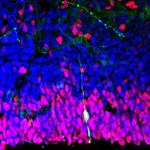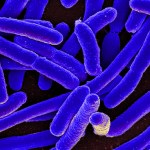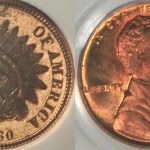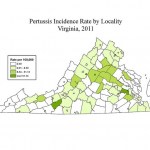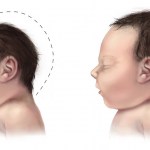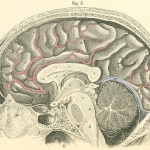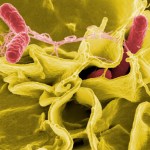Misc
Even as Michael Phelps piled a 23rd gold medal onto his stack, he also drew attention at the Rio Olympics for circular bruises on his shoulder resulting from a pseudoscientific medical treatment called cupping. Several ancient cultures practiced variants of cupping in order to reduce pain or heal injury. On Respectful Insolence, Orac writes "even if it does date back 5,000 years, arguably so does bloodletting." He continues "there is no compelling evidence that cupping is effective for any condition. Certainly, there is no credible evidence that it helps athletic performance." The benefit…
On Respectful Insolence, Orac examines the dangers posed by experimental stem cell treatments, which are often offered outside the United States in order to avoid regulatory oversight. Orac writes that stem cell therapy is "moving from cutting edge science to applied science" but treatments are not yet refined to the point of being safe and effective. In the case of Jim Gass, a stroke patient who sought stem cell therapy at clinics around the world, the intervention proved to be disastrous, as cells injected into his lower back grew into a cancer-like mass that left him paralyzed from the…
The decision by PG&E to mothball the last operating nuclear reactors in California has some people cheering—and other pounding their fists. On Significant Figures, Peter Gleick writes that the closure of Diablo Canyon Nuclear Plant "rankles those who see all non-carbon energy sources as critical in the fight against the real threat of climate change." Yet Gleick argues that with the pitfalls of nuclear energy and the high costs of retrofitting the plant, it is appropriate to shut it down and focus on developing wind and solar capacity. Meanwhile, Greg Laden considers the risk a major…
Arctic sea ice appears likely to reach a record minimum extent this year; as Greg Laden says, "It is almost like the Earth is warming up or something." The lowest extent of Arctic sea ice on record (since observations began in 1979) occurred in 2012, the second-lowest in 2007, and the third-lowest in 2015. On Stoat, William M. Connolley says it's currently at an "all-time low for the time of year, but only just, which is better than its been for the last few months." While the fate of the entire human race may hinge on the effects of global warming, Connolley also has $10,000 on the line.…
The first observation of a bacterial gene called MCR-1 in the United States has scientists worried, if not surprised. The gene provides resistance to colistin, an antibiotic with nasty side effects used to combat multidrug-resistant bacteria. On Aetiology, Tara C. Smith writes "colistin has seen a new life in the last decade or so as a last line of defense against some of these almost-untreatable infections." But now, bacteria wielding MCR-1 threaten to leave humans defenseless. On The Pump Handle, Liz Borkowski explains "MCR-1 is of particular concern because it’s carried on a plasmid, a…
"And yet many people today believe that weather modification is a hoax: the early overselling of rainmaking somehow caused it, down the line, to be grouped in the public mind with conspiracy theories about mind-altering 'chemtrails,' shock-jock speculation that the government manufactures tornadoes, and paranoid fantasies about the 'weather wars' involving earthquakes broadcast via the stratosphere. The reality is far less dramatic." -Ginger Strand, The Brothers Vonnegut
In 1945, after the United States dropped atomic bombs on Hiroshima and Nagasaki, there was much hand-wringing in the…
The European Union has announced that all scientific papers published there and based on publicly funded research will be freely available beginning in 2020. On Stoat, William M. Connolley compares the new rules with the copyright system utilized in the United States, writing "the mystery is why the UK, France, Germany, and hence the rest of the EU haven’t done this years back." On Confessions of a Science Librarian, John Dupuis considers the future of Elsevier, an academic publishing company based in Amsterdam that annually publishes hundreds of thousands of articles to the tune of $2,000,…
Four weeks after a wildfire began in the Canadian province of Alberta, thousands of structures in Fort McMurray have been destroyed, over 100,000 people have been evacuated, and 2200 square miles have gone up in smoke. The fire has also shut down commercial extraction of tar sands, a source of fossil fuel and the reason for Fort McMurray's prosperity. Greg Laden points out the perverse cause and effect of it all: tar sands contribute to global warming, global warming contributes to weather variation and drought, drought makes regions extra-vulnerable to wildfire, and wildfire shuts down tar…
On Significant Figures, Peter Gleick explains that growing populations worldwide have exerted peak pressures on water supplies, leaving entire regions more vulnerable to natural variations in rainfall. In turn, global warming has made these natural variations more extreme. One such variation is El Niño, when "droughts are typically more widespread and severe." Dr. Gleick reports on the challenges faced around the world in 2016, as several historic droughts grow worse. Meanwhile, in honor of Earth Day, Ethan Siegel suggests we count our blessings: "there’s still no planet as friendly to life…
Research makes it increasingly clear that along with drilling for oil and mining coal, extracting natural gas from deep underground causes serious damage to the environment and to public health. On The Pump Handle, Kim Krisberg examines the contamination that may result from dumping fracking wastewater into disposal wells, writing "about 1,000 different chemicals are used in the fracking industry, with more than 100 being known or suspected endocrine disruptors." Researchers collected water samples downstream from wells in West Virginia, and after "exposing both female and male mammalian sex…
On Pharyngula, PZ Myers doesn't just want cut your grass—he wants to tear it out by the roots and leave it to rot in the sun. He quotes J. Crumpler on The Roaming Ecologist, who calls lawns "sterile, chemically-filled, artificial environments [...] that provide no benefits over the long term; no food, no clean water, no wildlife habitat, and no foundation for preserving our once rich natural heritage." To make matters worse, lawnmower use adds carbon dioxide to the atmosphere, while beautiful bermuda grass requires a lot of H2O in a world that is increasingly insecure about water. During the…
In January, Hillary Clinton still possessed the benefit of the doubt. Memories of her and Bill snarling at Barack Obama in 2008 had faded, and despite her long and dreadful record, it's always possible to turn over a new leaf. But Clinton's ongoing response to Bernie Sanders shows why she is unfit for the presidency. Even as the frontrunner, Hillary shows no leadership ability; she, too, follows Sanders, trailing him to the left as he takes meaningful positions on issues like income inequality and campaign finance reform. Her saccharine smile says "I can do that too!" but truly she…
A new review of the scientific literature confirms the truth about vaccine exemptions; they endanger everyone. On The Pump Handle, Kim Krisberg outlines the horrible realities of vaccine-preventable disease, and writes that vaccine refusal has "accelerated the resurgence of whooping cough and measles here in the U.S." On Respectful Insolence, Orac writes "the MMR [vaccine] is very effective against measles, over 90%, but not 100%." Meanwhile, with whooping cough, vaccine-induced immunity wears down over time.
These windows of opportunity for infection would be inconsequential in a fully…
Scientists working to understand the implications of Zika's new prevalence in the Americas have found strong evidence that infection with the virus can cause fetal abnormalities and even miscarriage in pregnant women. On The Pump Handle, Liz Borkowski examines a series of studies conducted on Zika, including one which found the virus infected "most of the cortical neuron progenitors, which form the brain’s cortex" more quickly than other types of stem cell. This may be how the virus causes microcephaly, a birth defect resulting from abnormal brain development in the womb. On Discovering…
Would it surprise you to learn that the top movie at the North American box office, a computer-animated family film made for children, is a nakedly racist allegory, a celebration of the urban police state, and an insult to the entire animal kingdom and the natural world at large?
The premise of Zootopia is simple: a country bunny named Judy (yes, she's a rabbit) leaves her parents and her hundreds of siblings behind for a life in the big city. The difference between rural and urban living is the first ugly dichotomy the film establishes: farming carrots with your family is framed as a dead-…
In a validation of Albert Einstein's genius, the power of new technology, and the relevance of the scientific method (even if it takes a century), scientists working on a project called LIGO have witnessed ripples in the fabric of spacetime caused by gravitational waves. First predicted by Einstein in 1916 on the basis of general relativity, gravitational waves are cosmic shock waves that can result from the interactions of massive objects like black holes and neutron stars. Unlike electromagnetic waves, which pass through space, gravitational waves change the shape of space itself. Extremely…
In the 21st century, immortality beckons from several directions: cybernetics, artificial intelligence, telomere extension and cell therapy, maybe even an afterlife. But most of humanity's hope to transcend death revolves around the brain, as the manifestation of our memories and personality. On Pharyngula, PZ Myers considers the merits of new efforts to master the brain, such as a "cryonic brain preservation technique" that promises to preserve your dead gray matter for a future generation. PZ used to prepare tissue for microscopy in the same way: "I was chemically nuking all the proteins in…
On The Pump Handle, Liz Borkowski reports on a "public health nightmare" in Brazil that threatens to become more common around the world. The culprit is a virus called Zika, known to cause mild infections since 1947 but now "linked to nearly 4,000 cases of microcephaly – infants born with abnormally small brains and heads." On Aetiology, Tara C. Smith writes that the link between Zika and microcephaly is not conclusive, and explains how scientists will search for a definite relationship. In the meantime, officials in Brazil and other South American countries are telling women to postpone…
On The Pump Handle, Liz Borkowski reports another crack in one of the pillars of modern life—antibiotics. New research in China shows that a family of bacteria called Enterobacteriaceae (which includes E. coli and Salmonella) have acquired a gene that provides resistance to a last-resort antibiotic known as Colistin. These species of bacteria do not have to evolve resistance individually—in fact, they can trade antibiotic-resistant genes with one another using "transmissible pieces of DNA–plasmids, transposons, phage." As Tara Smith writes, "Since the development of penicillin, we have been…
It was high times for the Rebel Alliance at the end of Return of the Jedi (1983). Across the galaxy, crowds rejoiced at the destruction of the second Death Star and the apparent defeat of Emperor Palpatine. Princess Leia Organa, who two films earlier had seen her home planet exploded for sport, was re-united with a twin brother she never knew she had, becoming aware of her own Force sensitivity, and in love with a swashbuckling hero who would later father her son. It was a resounding victory, and deservedly so, even if Ewoks had to help.
The Force Awakens begins thirty years later,…

